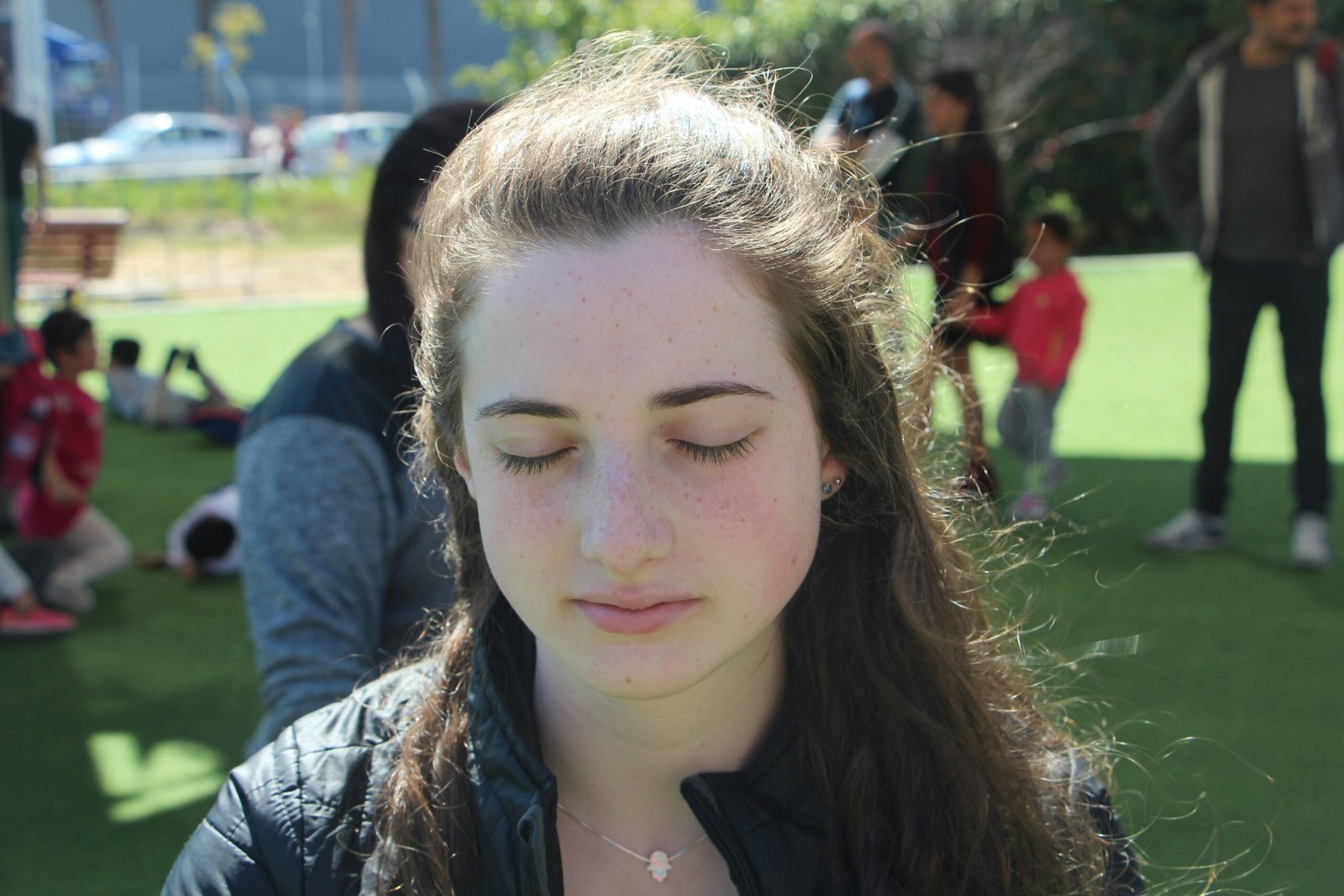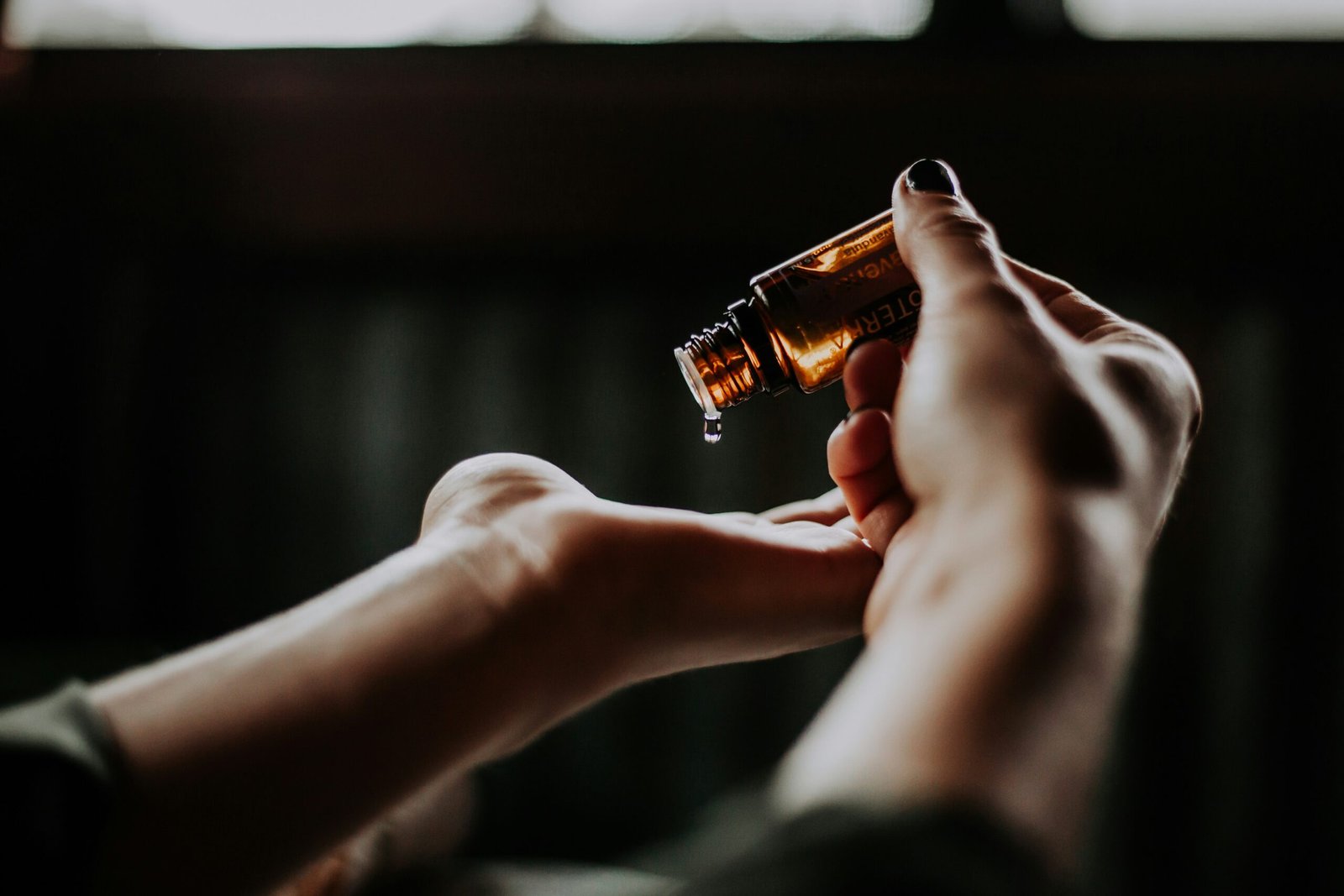How to Calm Anxiety Naturally: Practical and Proven Methods

Understanding Anxiety
Anxiety is a natural response to stress, characterized by feelings of worry, nervousness, or fear that can be triggered by various life situations. While everyone experiences anxiety at some point, it becomes concerning when these feelings persist or escalate into an anxiety disorder. The symptoms associated with anxiety can vary widely; they may include excessive sweating, rapid heartbeat, difficulty concentrating, or even feelings of impending doom. Recognizing these symptoms is the first step toward effective management.
There are numerous causes of anxiety, which can be divided into environmental, psychological, and biological factors. Life events such as a job loss, divorce, or the death of a loved one can act as significant stressors, contributing to acute anxiety. Additionally, individuals with a family history of anxiety disorders may find themselves more prone to developing similar issues. Psychological factors, like trauma and chronic stress, often exacerbate the condition. Furthermore, neurochemical imbalances within the brain may contribute to heightened anxiety levels, revealing the complexity surrounding its causes.
Importantly, it is crucial to differentiate between normal anxiety and anxiety disorders. Normal anxiety tends to be temporary and is usually tied to specific situations, such as preparing for an exam or delivering a presentation. In contrast, anxiety disorders are more debilitating, marked by intense feelings that interfere with daily activities and last longer than typical anxiety. Understanding these differences is vital for recognizing one’s own patterns of anxiety and seeking appropriate natural anxiety techniques for relief. Acknowledging and addressing anxiety early can lead to effective management strategies that promote overall well-being.
The Impact of Anxiety on Daily Life
Anxiety disorders are among the most prevalent mental health issues, affecting millions of individuals worldwide. The impact of anxiety extends beyond mere feelings of worry; it permeates into various facets of daily life, influencing work performance, relationships, and overall physical health. Studies indicate that approximately 31.1% of adults experience an anxiety disorder at some point in their lives, highlighting the widespread nature of this issue.
At work, anxiety can manifest as difficulty concentrating or making decisions. Individuals may find themselves overwhelmed by tasks that once felt manageable. This diminished focus can lead to decreased productivity and increased absenteeism, ultimately affecting career progression. For instance, employees coping with anxiety may struggle to engage in team dynamics, presenting challenges in collaborative tasks and communication.
In personal relationships, anxiety can create barriers to meaningful connections. Individuals may withdraw from social interactions due to fear of judgment or criticism. This withdrawal can result in isolation, exacerbating feelings of loneliness and emotional distress. Studies have shown that individuals with anxiety disorders often report lower levels of satisfaction in their relationships, underscoring the need for natural anxiety techniques that aid in fostering connection and communication.
Moreover, the physiological effects of anxiety can take a toll on physical health. Chronic anxiety might lead to issues such as elevated heart rates, digestive problems, and persistent fatigue. These symptoms can create a vicious cycle where the experience of physical discomfort feeds back into the anxiety itself, making it increasingly difficult to manage daily responsibilities. As these impacts proliferate, the necessity for effective management strategies becomes evident.
Clearly, addressing anxiety is paramount not only for ensuring personal well-being but also for maintaining functional daily operations in both work and personal spheres. The implementation of natural anxiety techniques is essential to mitigate these widespread effects, fostering healthier, more compliant lives.
The Benefits of Natural Approaches
In an age where mental health awareness is at the forefront, many individuals are seeking effective methods to manage their anxiety. Natural approaches to calming anxiety present several advantages over traditional medicinal treatments, making them an appealing option for those looking to take control of their mental well-being. One of the primary benefits of natural anxiety techniques is the minimal risk of side effects commonly associated with pharmaceuticals. Many over-the-counter and prescription medications can lead to dependency, tolerance, or various adverse reactions, deterring individuals from following through with treatment. In contrast, natural methods often harness the body’s intrinsic ability to heal and restore balance without introducing synthetic substances that can alter physiological states.
Moreover, utilizing natural techniques fosters a sense of empowerment and self-efficacy in individuals managing their anxiety. Instead of relying solely on medication, individuals become active participants in their own care, which can significantly enhance their confidence in coping with anxiety. Techniques such as mindfulness meditation, deep breathing exercises, and physical activity have been proven not only to reduce anxiety but also to improve overall emotional and physical wellness. Engaging in these practices can cultivate a deeper connection between mind and body, reinforcing the notion that there are viable, holistic alternatives to conventional treatments.
Furthermore, many natural anxiety techniques are easily accessible and cost-effective. For instance, breathing exercises and mindfulness practices can be implemented without any financial commitment, allowing individuals to seek relief regardless of their budget. The widespread availability of resources, such as online courses and community workshops, further supports individuals in finding effective anxiety management strategies. As more people explore these methods, there is a growing body of evidence and testimonials that highlight the success of natural remedies, promoting trust and encouraging widespread adoption of these practices.
Mindfulness and Techniques
An effective way to calm anxiety is through mindfulness and meditation techniques. These practices encourage a deeper connection with the present moment, allowing individuals to manage their thoughts and emotions more effectively. Below is a step-by-step guide to three popular techniques that can serve as natural anxiety techniques.
Deep Breathing: Deep breathing is foundational in managing anxiety. To practice this technique, find a quiet space and sit comfortably. Close your eyes and take a slow, deep breath through your nose, allowing your abdomen to rise. Count to four as you inhale, hold your breath for another count of four, and then exhale gently through your mouth for a count of six. Repeat this cycle for several minutes, focusing solely on your breath. This practice not only calms anxiety but also helps ground you in the moment.
Progressive Muscle Relaxation: This technique involves systematically tensing and then relaxing different muscle groups. Begin by finding a comfortable position, either sitting or lying down. Start with your feet; tense the muscles for a count of five, then relax them completely. Gradually work your way up your body—calves, thighs, abdomen, arms, and face. As you move through each muscle group, pay close attention to the contrast between tension and relaxation. This practice is effective in reducing physical symptoms of anxiety, enabling a more relaxed state.
Guided Imagery: Guided imagery is another powerful tool for calming anxiety. To start, sit or lie down comfortably, close your eyes, and take a few deep breaths. Visualize a peaceful scene, such as a serene beach or a lush forest. Engage all your senses: imagine the sounds, colors, and smells of the environment. Allow this tranquil mental image to envelop you, helping to alleviate racing thoughts. This technique can transport the mind from anxious concerns to a place of calm, reinforcing a sense of tranquility.
In conclusion, incorporating mindfulness and meditation techniques into daily practice can significantly help calm anxiety, empower individuals to take control of their mental state, and improve overall well-being. Whether through deep breathing, progressive muscle relaxation, or guided imagery, these natural anxiety techniques offer pathways toward a more peaceful mindset.
Physical Activity and Its Role
Engaging in regular physical activity plays a significant role in alleviating anxiety symptoms through the natural release of endorphins and other neurotransmitters that improve mood. Exercise is not only beneficial for physical health but also crucial for mental well-being. Various types of physical activities can be particularly effective in calming anxiety, contributing to enhanced emotional resilience.
Yoga, for instance, combines physical postures, breath control, and meditation, making it an excellent practice for reducing anxiety. Research shows that the mindful nature of yoga helps lower stress levels and enhances feelings of relaxation. By focusing on the body and breath, individuals can divert their minds from anxious thoughts, thereby promoting a state of calmness.
Walking, even at a moderate pace, is another simple yet effective method for managing anxiety. This accessible form of exercise can be integrated into daily routines and has been shown to improve mood and reduce stress hormones over time. A daily walk outdoors not only provides physical benefits but also allows individuals to connect with nature, which further enhances relaxation and mental clarity.
Aerobic exercises, such as running, swimming, or cycling, are also proven techniques for calming anxiety. These activities elevate heart rates and increase blood circulation, which can lead to improved cognitive function and mood stabilization. Engaging in aerobic exercise for at least 30 minutes several times a week is recommended to experience significant anxiety-reducing effects.
In conclusion, incorporating regular physical activity into one’s lifestyle, whether through yoga, walking, or aerobic exercises, can serve as a practical natural anxiety technique. These activities not only provide immediate relief from anxious feelings but also contribute to long-term mental health benefits, fostering resilience against anxiety triggers. By prioritizing these forms of exercise, individuals can effectively support their mental well-being while embracing a healthier lifestyle.
The Power of Nutrition
The connection between nutrition and mental health is increasingly recognized in the field of wellness. What we consume directly impacts our brain chemistry and, consequently, our emotional state. Certain foods are known for their positive effects on mood regulation, making them essential for individuals seeking to calm anxiety naturally. Rich in omega-3 fatty acids, fatty fish such as salmon and mackerel contribute to brain health and may mitigate symptoms of anxiety. Additionally, incorporating nuts and seeds into your diet can provide essential nutrients, like magnesium and vitamin E, which are known to improve cognitive function and emotional resilience.
Whole grains are another vital component; they help stabilize blood sugar levels, which can help regulate mood swings that often accompany anxiety. Examples include quinoa, brown rice, and oatmeal. Furthermore, incorporating a variety of fruits and vegetables ensures an adequate intake of vitamins and minerals, such as B vitamins and antioxidants, which are crucial for proper brain function. Improving nutrient intake can be a powerful natural anxiety technique to enhance overall mental well-being.
Hydration also plays an essential role in fostering a calm state of mind. Dehydration can lead to fatigue, irritability, and cognitive decline, which may exacerbate feelings of anxiety. Thus, it is vital to drink plenty of water throughout the day to maintain optimal hydration levels. Herbal teas, such as chamomile and peppermint, can further contribute to relaxation and mental clarity.
Incorporating these nutritional strategies creates a solid foundation for calming anxiety naturally. By consciously selecting foods that nourish the brain and promote overall bodily health, individuals may find greater balance and resilience in their emotional lives.
Essential Oils and Herbal Remedies
Essential oils and herbal remedies have gained popularity as natural anxiety techniques to help individuals find relief from feelings of anxiety. Many studies suggest that certain essential oils can effectively calm anxiety and promote relaxation through their aromatic properties. For example, lavender essential oil is well known for its soothing effects, making it a common choice in aromatherapy practices. Research indicates that inhaling lavender oil can significantly reduce anxiety levels and improve sleep quality, adding to its reputation as a natural anxiety remedy. Another effective option is chamomile oil, which has been shown to induce calmness and reduce nerve tension.
When considering herbal supplements, passionflower and valerian root are noteworthy mentions. Passionflower is known for its calming properties, often used to alleviate anxiety and improve sleep without the sedative side effects associated with pharmaceuticals. Meanwhile, valerian root has a long history of use as a natural remedy for anxiety and insomnia. Typical dosages for these supplements vary; passionflower is often taken in the form of a tea or tincture at 250-500 mg, while valerian root may be effective at 400-900 mg, typically taken before bedtime.
It is crucial to use essential oils and herbal remedies thoughtfully. For essential oils, they can be diffused into the air, used in baths, or applied topically when diluted with a carrier oil. Always ensure that the oils are of high quality to achieve optimal results. As with any alternative treatment, consulting with a healthcare provider before incorporating these methods into your routine is essential. They can offer tailored advice based on individual health needs and potential interactions with medications. By using these natural remedies properly, individuals can effectively incorporate calming measures into their daily lives to help manage anxiety.
Establishing a Support System
Building a robust support system is a fundamental component in managing anxiety effectively. The process of calming anxiety often requires the engagement of trusted individuals who can provide understanding and encouragement. Social support can manifest in various forms, including family, friends, and community groups, each offering a unique contribution to an individual’s emotional well-being. These connections not only help in sharing the burden of anxiety but also foster a sense of belonging and reassurance.
One effective way to establish this network is by reaching out to family members and close friends. Engaging in open conversations about one’s feelings can be a powerful tool. It allows individuals to express their concerns and receive validation, making the experiences seem less isolating. Additionally, friends can often provide perspective and encouragement that may aid in calming anxiety. When individuals share their experiences, it can lead to increased empathy and understanding, which is essential for emotional solace.
Furthermore, joining support groups that focus on anxiety management can also be beneficial. These groups create a safe space for individuals to connect with others who share similar challenges. Participants can exchange natural anxiety techniques, coping strategies, and personal stories, thus enhancing their understanding of anxiety. The act of sharing can diminish feelings of shame and stigma often associated with mental health issues, leading to a healing environment.
Finally, it is essential to remember that seeking professional help should complement social support. Therapists and counselors can provide valuable resources and strategies tailored to individual needs. By combining personal connections with professional guidance, individuals can navigate their anxiety more effectively. In conclusion, establishing a solid support system is a critical step in managing and calming anxiety, turning isolation into collaboration in the journey towards better mental health.
When to Seek Professional Help
Anxiety can manifest in various forms and intensities, ranging from occasional feelings of unrest to persistent and debilitating symptoms. While many individuals might find relief through natural anxiety techniques, there are instances when professional intervention becomes necessary. Recognizing the right moments to seek help is crucial for effective management and recovery.
One of the primary indicators that anxiety may require professional help is when symptoms begin to interfere with daily functioning. If feelings of anxiety persist for weeks or months, affecting your ability to work, maintain relationships, or engage in self-care, it is time to consult with a mental health professional. Symptoms such as intense worry, restlessness, sleep disturbances, and difficulty concentrating can indicate that a professional assessment is warranted.
Moreover, if anxiety manifests with physical symptoms like panic attacks, rapid heart rate, or persistent fatigue, reaching out for support is essential. These physical experiences can be overwhelming and may require more than just self-care methods. In such cases, mental health professionals can offer tailored treatment options, which may include therapy, medication, or a combination of both, depending on the severity and nature of the anxiety.
It’s important to remember that seeking help is not a sign of weakness but rather an acknowledgment of the complexity of mental health. Professional support provides access to tools and strategies that can enhance the effectiveness of calming anxiety techniques someone may already be practicing. Additionally, therapy can help identify the root causes of anxiety, enabling individuals to address underlying issues with greater clarity and resolve.
In conclusion, knowing when to seek professional help is a vital step in the journey toward managing anxiety effectively. By recognizing the signs that indicate a need for assistance, individuals can take proactive measures towards achieving a healthier, balanced state of mind.






Responses